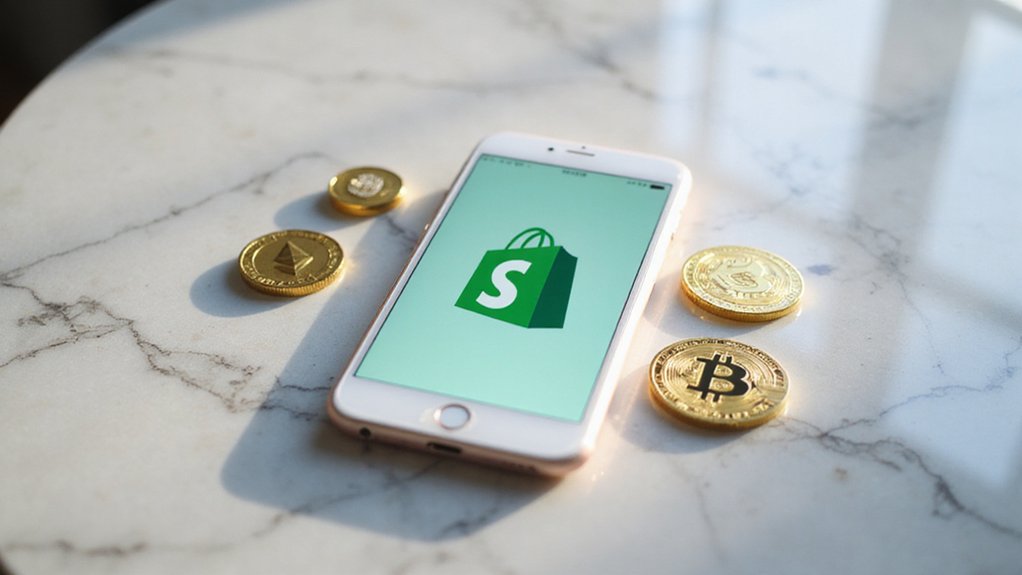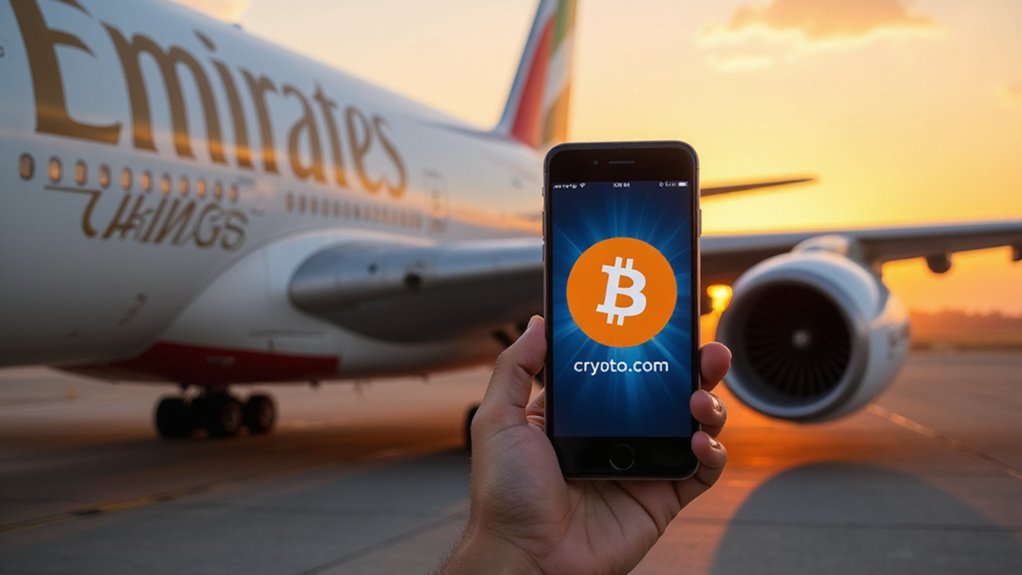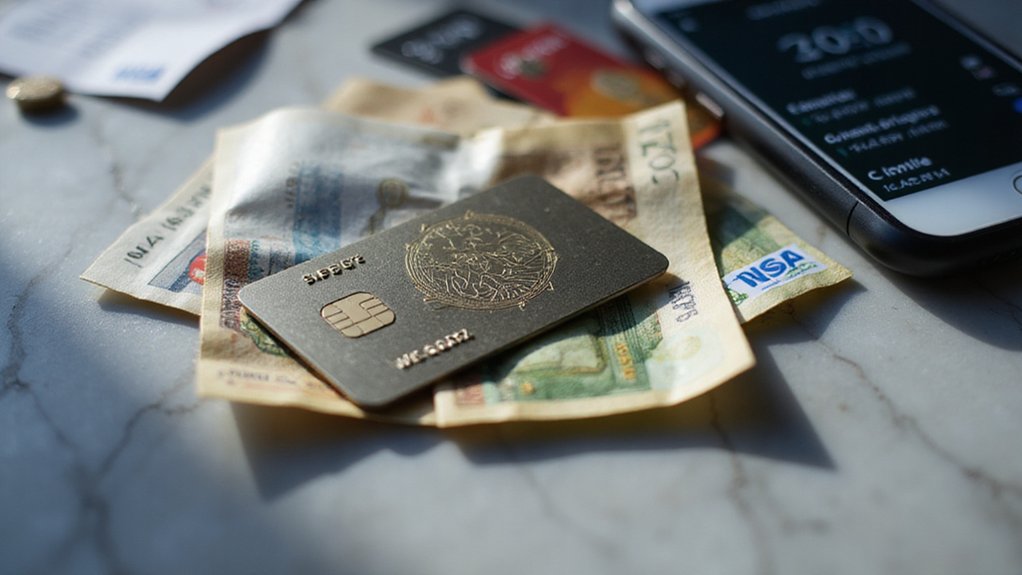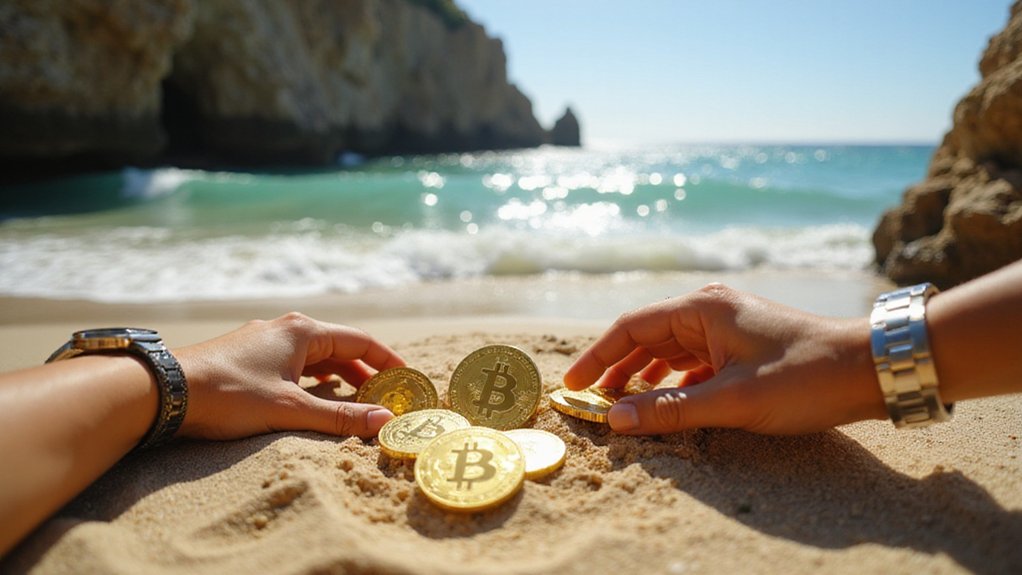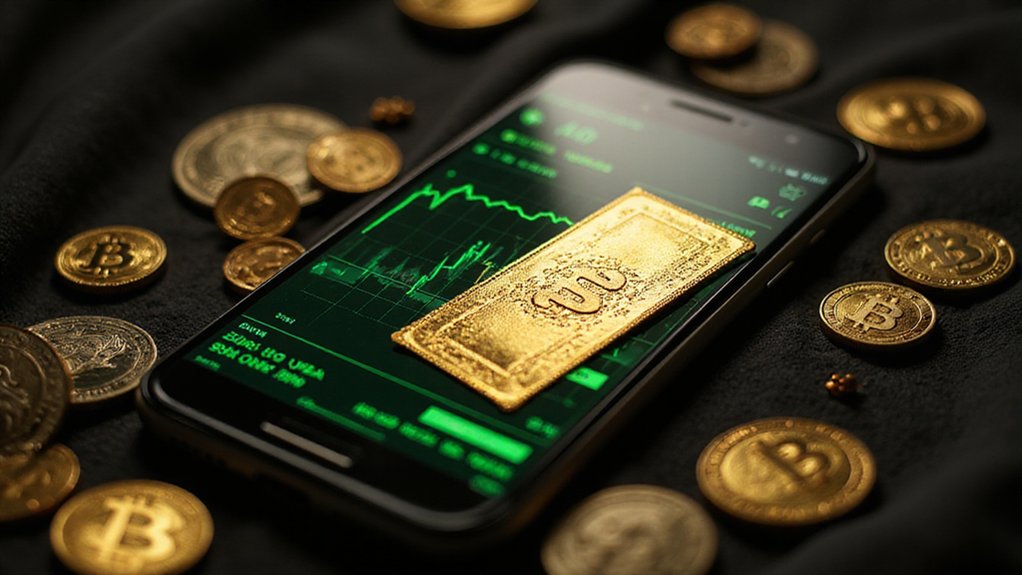PayPal has quietly orchestrated what might be the most pragmatic bridge between cryptocurrency‘s wild west and traditional commerce’s buttoned-up establishment, launching a “Pay with Crypto” service that accepts over 100 digital currencies while guaranteeing merchants never have to wrestle with bitcoin’s notorious volatility.
PayPal’s crypto bridge eliminates bitcoin volatility headaches while connecting digital currency chaos to buttoned-up traditional commerce with surgical precision.
The mechanism operates with surgical precision: customers pay using any cryptocurrency from their Coinbase or MetaMask wallets, while merchants receive predictable USD payments within seconds. PayPal‘s proprietary stablecoin PYUSD serves as the vital intermediary, converting crypto payments into dollar-backed stability before final settlement. This architectural elegance eliminates the traditional headache of merchants watching their revenue fluctuate with Dogecoin’s latest manic episode.
The fee structure reveals PayPal’s aggressive market positioning. At 0.99% through July 2026 (rising to 1.5% thereafter), these rates undercut traditional credit card processing by substantial margins—particularly meaningful when standard merchant fees range from 1.5% to 3.5%. For cross-border transactions, the savings become genuinely dramatic, with PayPal claiming roughly 90% reductions compared to international credit card processing.
PayPal’s technological approach demonstrates sophisticated market understanding, processing payments through both centralized exchanges like Coinbase and decentralized platforms like Uniswap depending on wallet architecture. This dual-channel strategy guarantees liquidity while accommodating varying user preferences for custody models. The system particularly excels at facilitating international remittances with significantly lower fees and faster transaction times compared to traditional banking methods.
The cross-border implications extend beyond mere cost reduction. Traditional international payments involve byzantine correspondent banking relationships, currency conversion spreads, and settlement delays that can stretch days. PayPal’s system bypasses these antiquated mechanisms entirely, offering merchants immediate access to funds regardless of whether customers paid with ethereum, bitcoin, or some obscure token named after internet memes. The service particularly benefits international commerce scenarios, such as shoppers in Guatemala seamlessly purchasing from Oklahoma City merchants.
Perhaps most tellingly, PYUSD balances held in PayPal accounts earn 4% yield—a subtle incentive encouraging merchants to maintain stablecoin positions rather than immediately converting to traditional fiat. This creates potential network effects, building PYUSD’s utility while offering merchants returns that exceed most traditional business banking arrangements. The timing aligns with the recent GENIUS Act signed by President Trump, establishing the first federal regulatory framework for the $250 billion stablecoin market.
The broader strategic implications suggest PayPal recognizes stablecoins as legitimate infrastructure rather than speculative instruments, positioning the company to capture value from blockchain technology‘s maturation without exposing users to cryptocurrency’s characteristic chaos.

